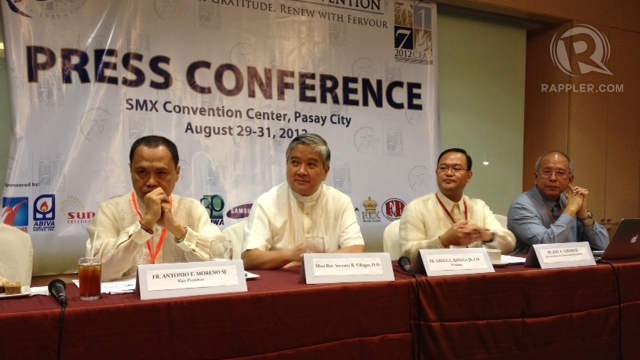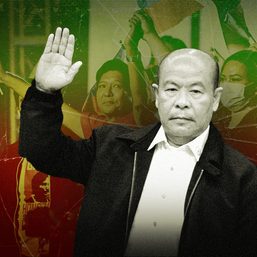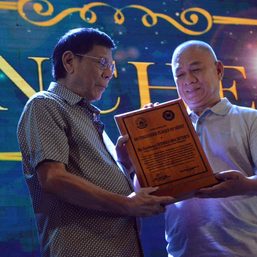SUMMARY
This is AI generated summarization, which may have errors. For context, always refer to the full article.

MANILA, Philippines – Scholarly opposition is perfectly normal.
The Catholic Educational Association of the Philippines (CEAP) supports Catholic bishops but respects professors who back the Reproductive Health (RH) bill, said a top official of the Philippines’ biggest association of Catholic schools.
Founded in 1941, CEAP has over 1,200 members, including some of the most respected schools in the country.
CEAP national advocacy chair Fr Joel Tabora on Wednesday, August 29, explained that the association supports Philippine bishops in opposing any law that does the following:
-
includes provisions for “abortifacient” birth regulation
-
forces Catholics “to act against his or her conscience”
-
“usurps” parents’ rights to educate their children on sexuality
“The CEAP supports the bishops in their official teaching, which is binding on all believers,” said Tabora, also president of the Ateneo de Davao University, in a press conference in time for CEAP’s annual national convention.

But Tabora, a Jesuit priest, acknowledged not everyone is Catholic in a “plural” society.
“You have different groups of people who come together, advocating strong positions, but in the end, in a democratic, plural society, people have to come together and understand what is the demand of the common good, what is the demand of social justice. And I think, in a plural society, no one group can dictate on the other groups,” Tabora said.
“In a plural society, in a democratic society, this has to be the product of negotiation, open communication with one another, reason,” he explained.
‘Conscientious’ stance
Tabora, in particular, said there was nothing wrong with the 192 Ateneo professors’ support for the RH bill.
“I certainly cannot say that they have done this unconscientiously; they declare it explicitly that they say this in conscience. In the context of the university, this is something which, I think, should be considered normal when people come up with a position, calling forth the positions of others,” he said. (Watch more in the video below.)
Tabora echoed sentiments in a document by the late Pope John Paul II, his Apostolic Constitution on Catholic Universities. It urges respect for Catholic doctrine but upholds academic freedom.
While telling Catholic school teachers to respect Church teachings, John Paul II also said the Church respects academic freedom based on scholarly disciplines – “so long as the rights of the individual and of the community are preserved within the confines of the truth and the common good.”
“Catholic teaching and discipline are to influence all university activities, while the freedom of conscience of each person is to be fully respected,” John Paul II said.
Tabora explained this is a Catholic university’s mandate: faith (that) seeks understanding and understanding (that) seeks faith.
“If you stop the discussion, you kill the university. But if you kill the Catholic university, you hurt the Church. The Catholic university, I think, is where in openness, you search for truth. And our partners are the bishops,” Tabora said.
‘Confusing’ students
Questions on the Ateneo professors’ statement surfaced after the CBCP president, Cebu Archbishop Jose Palma, expressed his concern about this earlier this month. (Read the professors’ paper below.)
“If we are a Catholic school, we should not teach anything contrary to the official teaching of the Church,” said Palma, pointing out that professors who do so are “confusing” the students.
Speculations then arose that the CBCP could sanction the pro-RH bill professors. But another member of the CBCP, Lingayen-Dagupan Archbishop Socrates Villegas, quelled this fear.
“I fully agree with the statement of my brother bishop. There is no question about that,” said Villegas, chair of the CBCP Episcopal Commission on Catechesis and Catholic Education, referring to Palma’s statement.
“But I just want to caution you that we bishops are not trigger-happy with imposing penalties, because we are first brothers by baptism, and we are first fathers, who need to guide and to correct,” Villegas said.
He added that the Church prefers to engage in dialogue first, then “if the dialogue does not work, then by law, there has to be a written reprimand, and then after the written reprimand, then we go on with the investigation.” (Watch more in the video below.)
“If the child of the Church remains incorrigible, then that is when the sanctions are imposed. And the sanctions are not always excommunication. It is not always termination from the job. There are different degrees of sanctions,” Villegas explained.
He stressed, however, that Palma is “very happy” with the feedback of the Ateneo president and the Jesuit provincial superior on the pro-RH bill professors.
The CBCP on Tuesday, August 28, said bishops will meet next week to discuss the Ateneo professors’ support for the long-delayed bill. – Rappler.com
For more updates on the issue of the RH Bill, view our #RHBill Debate Microsite.
Read on for other views on the RH Bill debate:
| Yes to RH Bill | No to RH Bill |
More in #RHBill Debate:
- The 7 Deadly Sins of the RH bill, according to Sotto
- CONVERSATIONS: Are you for or against the #RHbill?
- Nobel Prize winner contradicts CBCP
- Fact Sheet: House Bill 4244 on Reproductive Health
- UN weighs in on RH Bill
- WHO on RH bill: No politics, just facts
- RH bill backers hit bishops’ ‘science’
- Catholics clash over controversial RH bill
- Poverty, scarcity and the rule of the Catholic Church
Add a comment
How does this make you feel?
![[EDITORIAL] Kalaban mo ang mga senador na protektor ni Quiboloy](https://www.rappler.com/tachyon/2024/03/animated-quiboloy-kojc-senate-carousel.jpg?resize=257%2C257&crop=365px%2C0px%2C720px%2C720px)

![[The Slingshot] Will Bong Go be part of the ICC charge?](https://www.rappler.com/tachyon/2023/12/TL-bong-go-dec-7-2023.jpg?resize=257%2C257&crop=288px%2C0px%2C720px%2C720px)




![[Time Trowel] Evolution and the sneakiness of COVID](https://www.rappler.com/tachyon/2024/02/tl-evolution-covid.jpg?resize=257%2C257&crop=455px%2C0px%2C1080px%2C1080px)








![[The Slingshot] Alden Delvo’s birthday](https://www.rappler.com/tachyon/2024/04/tl-alden-delvo-birthday.jpg?resize=257%2C257&crop=263px%2C0px%2C720px%2C720px)
![[EDITORIAL] Ang low-intensity warfare ni Marcos kung saan attack dog na ang First Lady](https://www.rappler.com/tachyon/2024/04/animated-liza-marcos-sara-duterte-feud-carousel.jpg?resize=257%2C257&crop=294px%2C0px%2C720px%2C720px)
![[Newsstand] Duterte vs Marcos: A rift impossible to bridge, a wound impossible to heal](https://www.rappler.com/tachyon/2024/04/duterte-marcos-rift-apr-20-2024.jpg?resize=257%2C257&crop=278px%2C0px%2C720px%2C720px)

There are no comments yet. Add your comment to start the conversation.